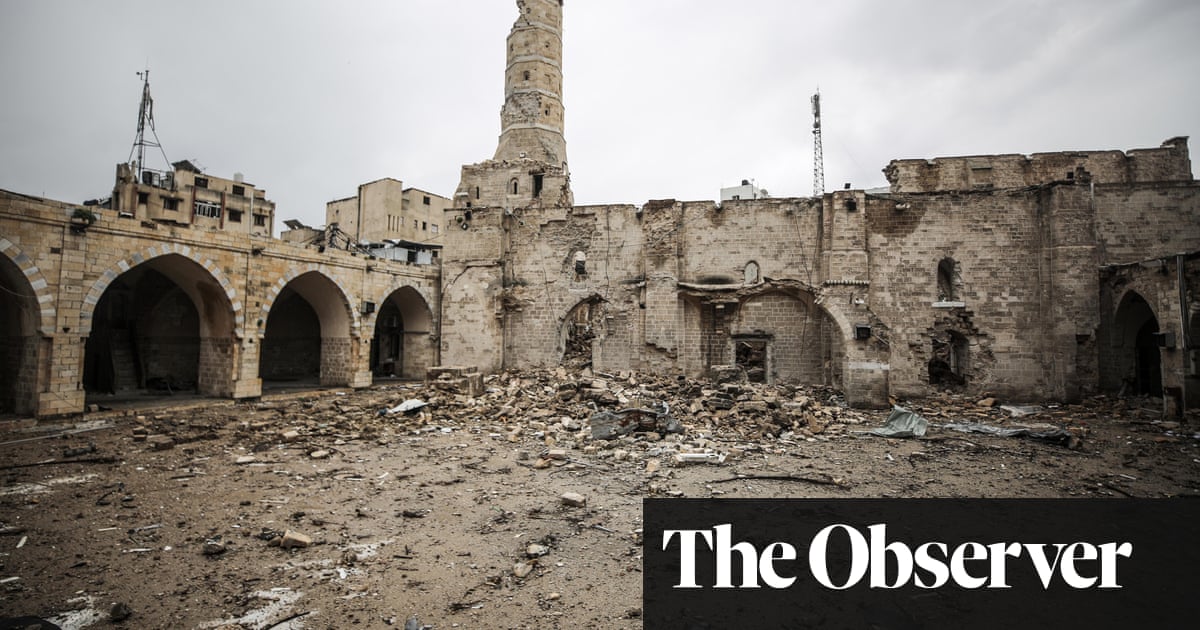Its walls collapsed and its minaret cut short, Gaza’s Omari mosque remains standing but vastly diminished. Around it, the historic old city is also in tatters. The 7th-century mosque, also known as the Great Mosque of Gaza, was Gaza’s most famous and its surroundings a focal point of the Palestinian enclave’s history and culture, but the damage done to its heritage over more than 100 days of Israeli bombardment spreads across the city.
For the few Palestinians who remain, and the far greater number displaced and hoping to return, the culture and history has been reduced to memories.
“The city is a ghost town, people walk around with pale faces and their spirits are tired after having gone through this war. If you walk to the old city of Gaza, you will only remember the memories and feel sickened and saddened by the amount of destruction of cultural and religious sites,” said Bader Alzaharna, who lives in Gaza City despite the intensity of Israel’s ground operation in the area.
“The old city of Gaza, which used to be full of cultural sites, is grey and overcast. Walking in Gaza feels like we are in a movie, in a fictional story, in a fantasy. The scene is apocalyptic.”



This is the best summary I could come up with:
Its walls collapsed and its minaret cut short, Gaza’s Omari mosque remains standing but vastly diminished.
For the few Palestinians who remain, and the far greater number displaced and hoping to return, the culture and history has been reduced to memories.
The agency said it had received reports of damage to other sites but had not been able to verify them through the means available, mainly satellite imagery, because of the conflict.
Wissam Nassar, a photographer who covered several wars in Gaza but also documented its culture, said the damage to the Omari mosque and its surroundings had hit him personally due to the time he spent there.
Nassar, who now lives in Canada, said he remembers visiting the old city, including the now-destroyed Turkish baths, both as a photographer and in his personal life.
Israel aimed to destroy not only people but also stones, infrastructure and historical buildings, wanting to eradicate human life and cultural heritage.”
The original article contains 847 words, the summary contains 156 words. Saved 82%. I’m a bot and I’m open source!